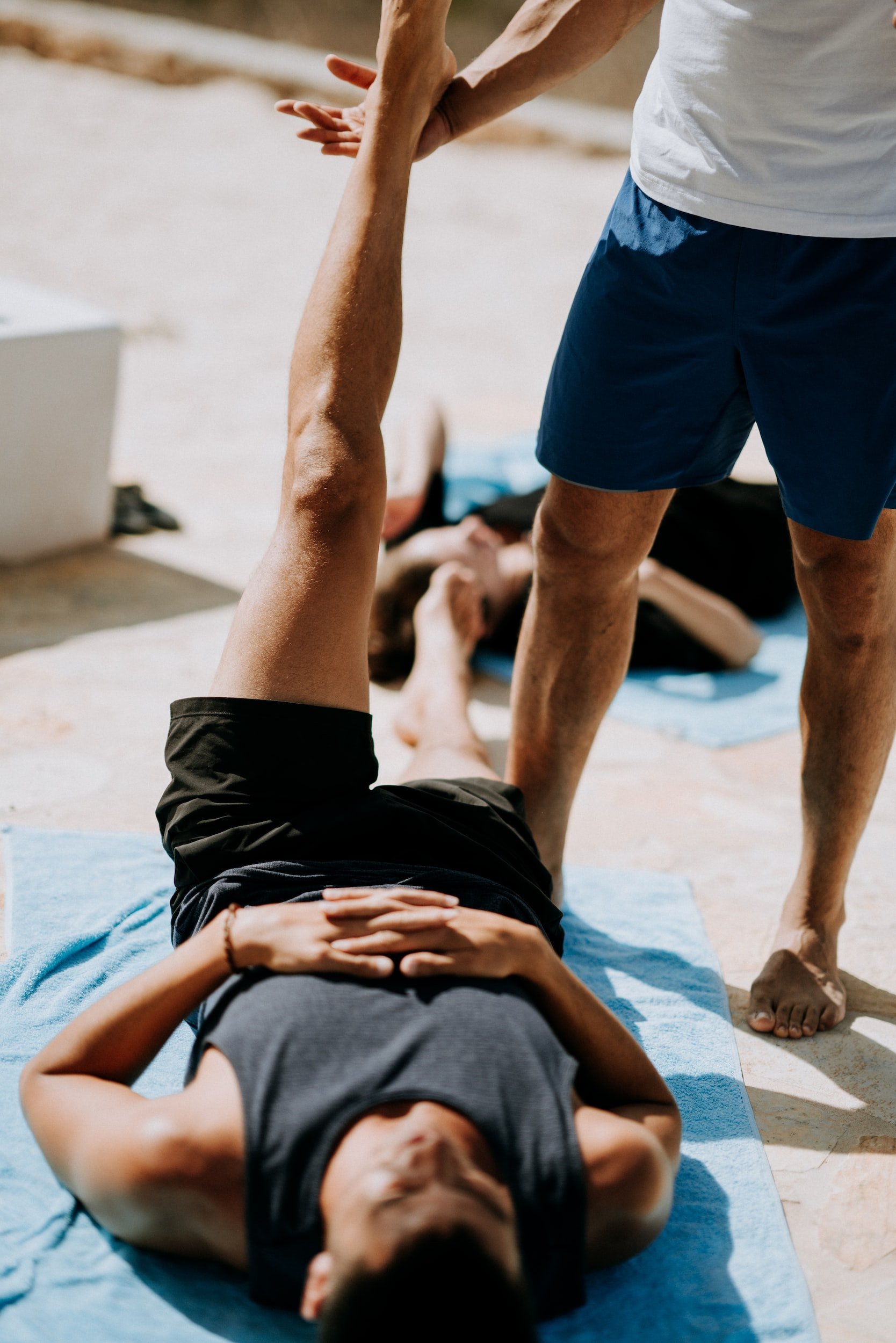PHYSIOTHERAPIST RIANNE HARPER SHARES EXPERT ADVICE ON HOW TO AVOID KNEE INJURIES FOR RUNNERS.
Running can be an addictive sport for many people due to the affordability and convenience, needing less equipment than many other sports. Running has many benefits, helping to improve our physical health, our mood and overall well-being (endorphins are a wonderful thing).
Whether it’s a 10k, the local Hackney Half-Marathon, or training for a full-distance marathon the amount of training that any runner has gone through isn’t always enough to prevent running related injuries.
Running with confidence: a guide to prevent knee pain (summary)
WHAT IS REQUIRED FOR A SUCCESSFUL RUN?
HOW CAN PHYSIOTHERAPY HELP?
WHY IS KNEE PAIN A COMMON INJURY?
6 TOP TIPS TO PREVENT KNEE PAIN
HOW TO PREVENT AND CURE RUNNING RELATED INJURIES
What is required for a successful run?
The runner must have a great level of cardiovascular fitness and endurance to continue at a steady pace whilst conserving energy to manage the distance. Many runners find the few miles at the end of the run the hardest. Specifically for Marathon runners, the section towards the end can also be known as hitting the brick wall. Therefore, setting a steady pace, staying hydrated, having enough fuel in the body, and keeping a smile on your face is essential.

How can physiotherapy help?
STRENGTH TRAINING
For all runners, strength training is essential to help improve core muscle endurance and power during the run. This could be post-run, repairing niggles, or in the run up to an event to make sure you prepare well. The runner can also seek specific advice on stretches to assist any tight or stiff muscles.
Why is knee pain a common Injury?
Pain around the kneecap is usually due to a sign of overuse at the knee. Patellofemoral pain is common amongst recreational runners and can be associated with altered kinematics. The most common diagnosis is also known as patellofemoral pain syndrome or ‘runners knee’ when the main pain is below the knee cap (patella). The main symptoms are aggravated by running up or down hills, during deep squats, prolonged sitting (when knee is bent) and could occur during or post run.
Causes include:
- Weakness at the quadricep muscles and glutes
- Anatomical factors
- Injuries
- Bony abnormalities
- Tight muscles
- Foot biomechanics
The other causes could be linked to poor quality sleep and “pushing too hard”, we all know that uber competitive person that needs to beat their Strava results every time they run. The study by Mousavi et al 2021, concluded that poor sleep quality and pushing too hard increased the association with most running related injuries. The other factors included lower perceived health and feet biomechanics also associated with more running related injuries. Out of the survey, 54% of runners reported at least one running related injury. The most common injury reported was the knee (45% of all injuries) with patella femoral pain being the most likely cause of the issue. Secondary to this the achilles tendon/ lower leg.
6 Top tips to prevent knee pain
- STRENGTHENING THE MUSCLES: Evidence supports strengthening the quadriceps and muscles around the hip to assist reducing load through the patellofemoral joint. This can assist to reduce the pain and improve tolerance to exercise.
- PAIN RELIEF: For very acute pain, getting in touch with the pharmacist or GP to advise on the best pain relief to help.
- REST: It’s important to rest and have a plan. Have days off if pain is bad, lower the intensity of the run, or replace your running with sessions in the gym utilising lower-impact cardio exercise …think swimming and cycling.
- ORTHOTICS: Certain people tend to roll their feet inwards, this can translate load directly to the knee. Thereby getting advise on the best orthotics to assist your alignment can help further management.
- QUALITY SLEEP: Poor sleep has been proven to be related to running related injuries. Improving the amount of sleep can help reduce the risk of injuries post running.
- HEALTHY WEIGHT Trying to maintain a healthy weight can help to reduce the risk of running related injuries. There has been studies to show that being overweight can increase the risk of running related injuries.
How to prevent and cure running related injuries
Research has shown that early intervention improves outcomes for running related injuries. At Fix our team are highly trained clinicians and can assist individuals in prevention and assisting further management of knee pain. Rianne is one of our senior physiotherapist who has a keen interest in the management of running related injuries. As a runner herself she is currently training for the Hackney half and a 25km fell-run in the Lake District this Summer. There are a variety of exercises that can be prescribed to assist further management of patellofemoral joint pain after undergoing an in-depth assessment of the knee.
NEXT STEPS?
If you have any concerns about your body prior or post running, please seek further advice by booking in for a review at Fix. Our physiotherapists can provide high level education, exercise prescription and treatment to assist further management.
Fix can help reduce the risk of injury and management of symptoms before the knee become a real pain.
Physiotherapist
